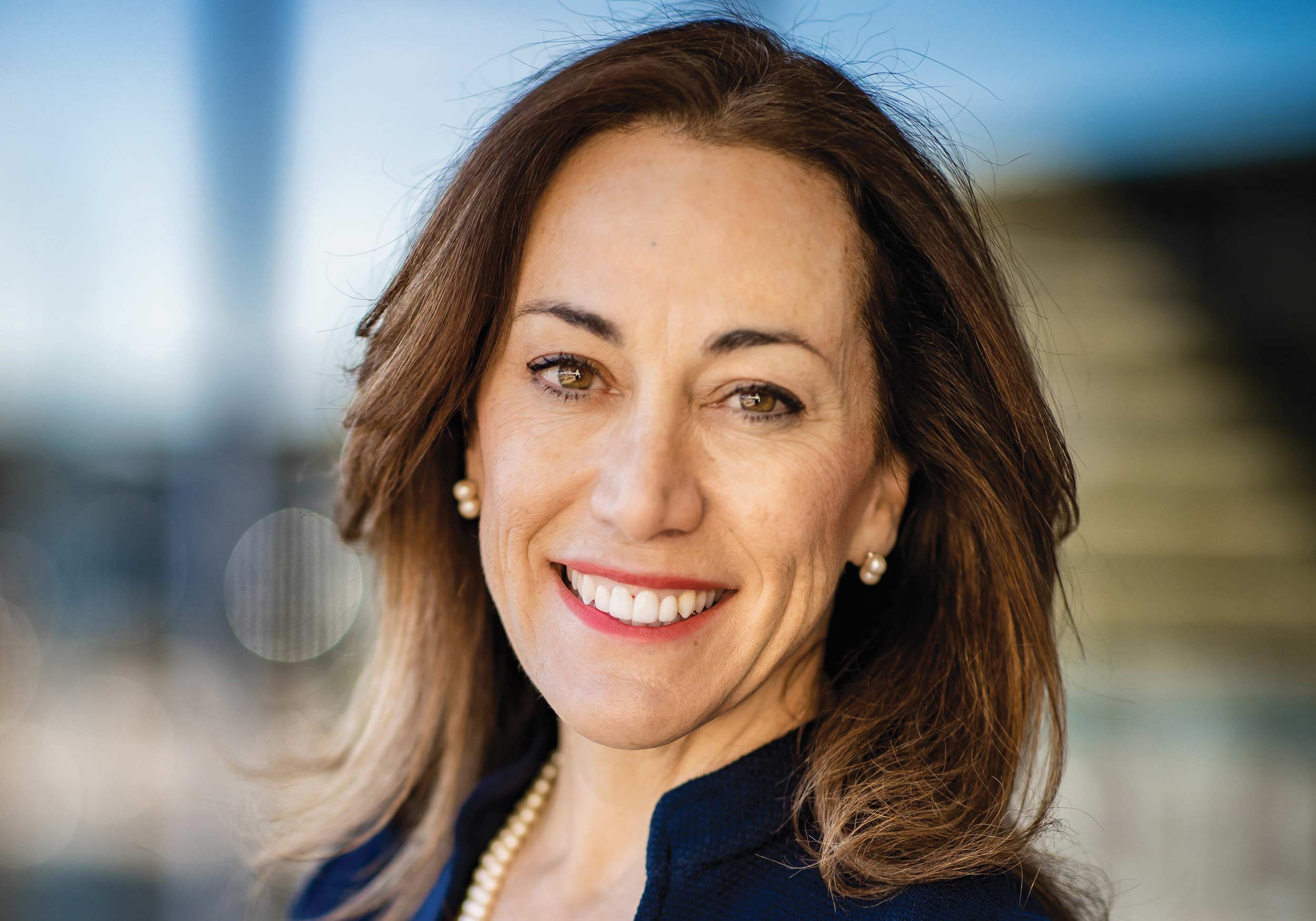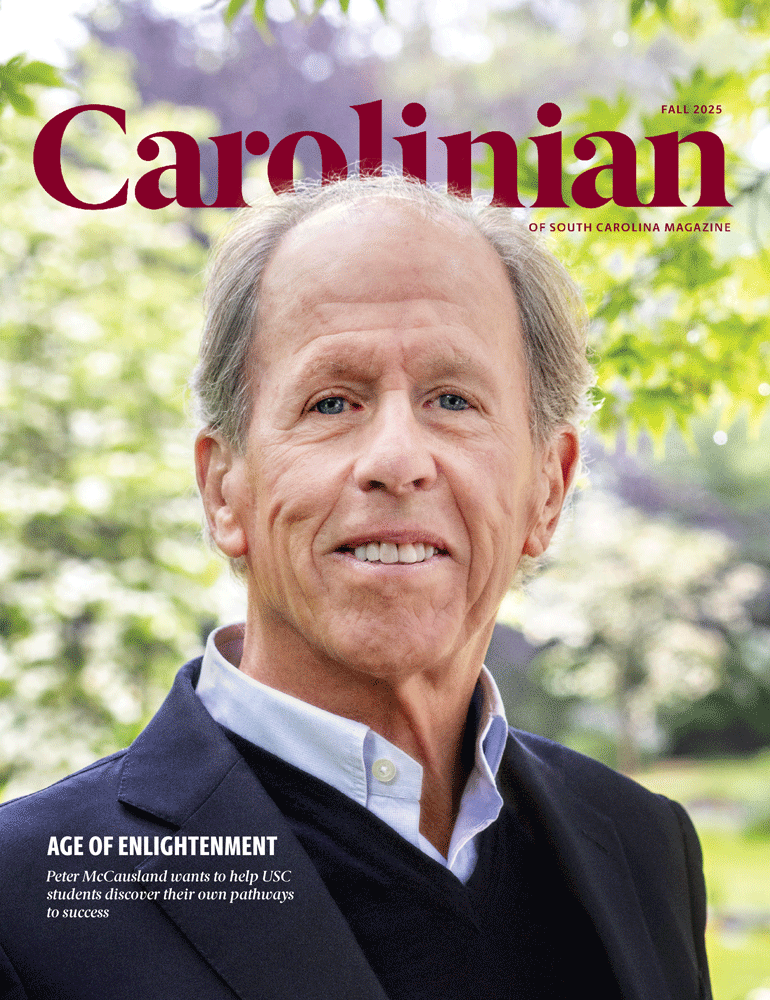Janine Davidson was impressive when she arrived at the University of South Carolina in 1998, having spent a decade in the U.S. Air Force as an aircraft commander and senior pilot. After USC, she became even more impressive.
Davidson served as a fellow at the Brookings Institution while completing her dissertation, then worked her way up to become president of Metropolitan State University of Denver. In between, she made stops at the Department of Defense and served as the 32nd Under Secretary of the U.S. Navy in 2016-17.
But Davidson’s ascent began in the Air Force. She was the first woman to fly the Air Force’s tactical C-130 and was one of four women in her C-17 squadron. The experience also opened her eyes to international politics. After the Air Force, she took a correspondence class through USC with international studies professor Chuck Kegley.
“That’s how old I am,” says Davidson, 57. “I took a correspondence class. And I was hooked.”
Davidson came to USC to earn a master’s in international studies and was talked into a doctorate by her professors, including Kegley. Her father — a career Navy man — questioned the trade-off of a military career for a liberal arts degree, but she was determined.
“We should be promoting pedagogy, and we should all constantly be trying to hone our craft and increase our skills.”
“I was passionate about it,” she says. “I loved this stuff, and I knew there were people out there making a living doing it.”
Fresh off a divorce just as she was finishing her studies, she and a friend from the international studies program moved to D.C. to look for jobs. She got an interview with the Brookings Institution, which offered a predoctoral program that allowed her to complete her dissertation while she worked.
“I thought I didn’t stand a chance,” she says. “That was just this big, huge door opener for Washington, D.C., in that whole Washington national security, foreign affairs ecosystem where there are people going in and out of academia and government and think tanks.”
She also taught classes at George Mason University, first as an adjunct, then in a tenure-track position.
All those experiences inform her job as president at MSU Denver — a university with a diverse student population in an era when people question the value of a college degree.
“As an officer in the military, all they talk about is leadership, leadership, leadership,” says Davidson. “You don’t get to be an aircraft commander unless you go to aircraft commander school. You don’t get to be a company commander unless you go to company commander school. But in higher ed, you get to be a chair just because.”
To that end, she has created programs to train her staff and faculty members for those roles.
“We can help you be a good chair. We can help you be a really good dean. We can help you understand how your role really matters to the mission of the university,” she says. “Here at MSU Denver, teaching and our students are the thing. So we should be promoting pedagogy, and we should all constantly be trying to hone our craft and increase our skills.”
One of Davidson’s key initiatives has been creating a classroom-to-career hub, helping students see career opportunities in their majors and helping them get the experience needed to be competitive in the job market.
The focus is based in part on what today’s students say they want — a better job — versus gaining a more meaningful understanding of life.
“I don’t think those two things are mutually exclusive,” Davidson says. “I think you kind of have to do both. If you’re doing something because you think that’s just where the next jobs are going to be, or that’s a popular thing, but you don’t dig it, you’re not going to be great at it.”

